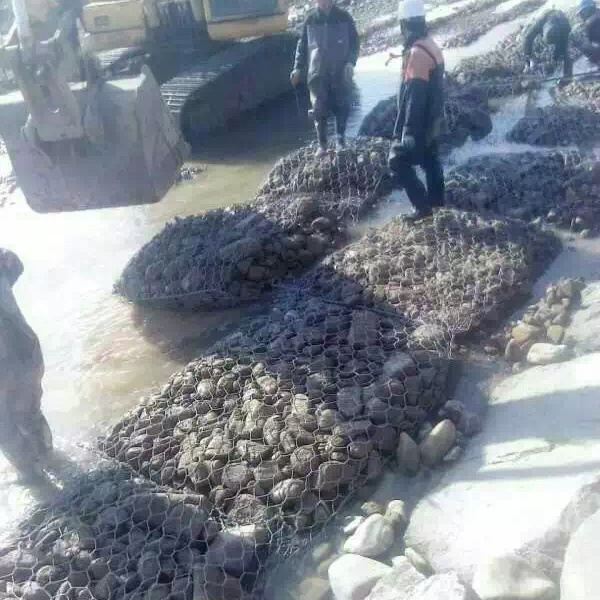Nov . 25, 2024 23:00 Back to list
Gabion Wall Wire Suppliers for Durable and Sustainable Construction Solutions
The Role of Wire in Gabion Wall Construction An Overview for Suppliers
Gabion walls have emerged as a popular solution in civil engineering and landscaping due to their versatility, effectiveness, and aesthetic appeal. These structures are essentially wire mesh containers filled with rocks, stones, or other materials, creating a durable and environmentally friendly wall system. As the demand for gabion walls continues to grow, the importance of high-quality wire for these applications cannot be overstated. This article explores the key aspects of wire for gabion wall suppliers, focusing on material specifications, types of wire, and best practices for ensuring durability and performance.
Understanding Gabion Walls
Gabion walls serve multiple purposes, including retaining soil, providing erosion control, and enhancing landscaping designs. They are especially beneficial in areas prone to flooding, soil erosion, or landslides. Because they allow water to flow through while retaining soil, gabion walls help maintain the integrity of the surrounding landscape. The success of these structures largely depends on the quality of the wire used in their construction.
Types of Wire Used in Gabions
1. Galvanized Wire This is perhaps the most common type of wire used in gabion walls. Galvanization involves coating the steel wire with zinc to protect it from corrosion. The thickness of the zinc coating can vary, influencing the wire's lifespan and resistance to rust. Suppliers should emphasize the importance of selecting high-quality galvanized wire, as inferior products can lead to premature deterioration.
2. PVC Coated Wire For additional protection against the elements, some gabion applications utilize PVC-coated wire. The plastic coating not only provides physical protection but also enhances the aesthetic appeal of the gabion walls by allowing for a range of color options. Suppliers should ensure that the thickness and adhesion of the PVC coating meet industry standards to guarantee durability.
3. Stainless Steel Wire Although more expensive, stainless steel wire is an excellent choice for gabion walls in corrosive environments, such as coastal areas. The inherent resistance of stainless steel to rust and corrosion makes it an ideal material for long-lasting applications. Suppliers who can provide high-grade stainless steel wire can cater to projects that require top-tier performance.
4. Welded vs. Hexagonal Wire Mesh Gabion walls can be constructed using welded wire mesh or hexagonal wire mesh. Welded wire provides a more rigid structure, suitable for heavy loads, while hexagonal mesh is more flexible, making it easier to adapt to different shapes and sizes. Suppliers should be able to offer both options, as client needs may vary.
wire for gabion wall suppliers

Key Considerations for Suppliers
When supplying wire for gabion walls, there are several crucial factors to consider
1. Wire Gauge The thickness of the wire (measured in gauge) is paramount for the structural integrity of the gabions. Thicker wires offer greater strength and durability, while thinner wires may be more cost-effective but less resilient.
2. Mesh Size The size of the wire mesh openings is another essential aspect. It must be appropriate enough to contain the fill material while allowing water drainage. Common mesh sizes range from 3x3 inches to 6x6 inches, depending on the intended application.
3. Quality Control Suppliers should implement rigorous quality control measures to ensure that their wire products meet industry standards. Regular inspections and testing of the wires for tensile strength and corrosion resistance can prevent costly failures in the field.
4. Sustainability As the world increasingly focuses on sustainability, suppliers should look for eco-friendly options in their wire production processes. This might include using recycled materials or ensuring that manufacturing practices minimize environmental impact.
Conclusion
Gabion walls represent a fusion of functionality and design, and the wire used in their construction is critical to their success. For suppliers in this niche market, understanding the importance of wire material, mesh type, and quality assurance is essential. As demand for gabion solutions rises, those who prioritize high-quality wire and sustainable practices will not only meet market needs but also contribute to more resilient and aesthetically pleasing infrastructures. By providing superior wire products, suppliers can play a significant role in the continued popularity and effectiveness of gabion walls in various engineering and landscaping projects.
-
The Role of Galvanized Gabion Mesh in Riverbank Protection
NewsJun.26,2025
-
The Role of Gabion Basket Raised Bed in Sustainable Gardening
NewsJun.26,2025
-
Quality Assurance of Wire Mesh Gabion Baskets
NewsJun.26,2025
-
Installation Guide for Welded Gabion Box
NewsJun.26,2025
-
How to Choose the Right Gabion Box
NewsJun.26,2025
-
Different Types of Gabion Wire Mesh
NewsJun.26,2025
-
Why PVC Coated Gabion Mattress Is the Best Solution for Long-Term Erosion Control
NewsMay.23,2025






